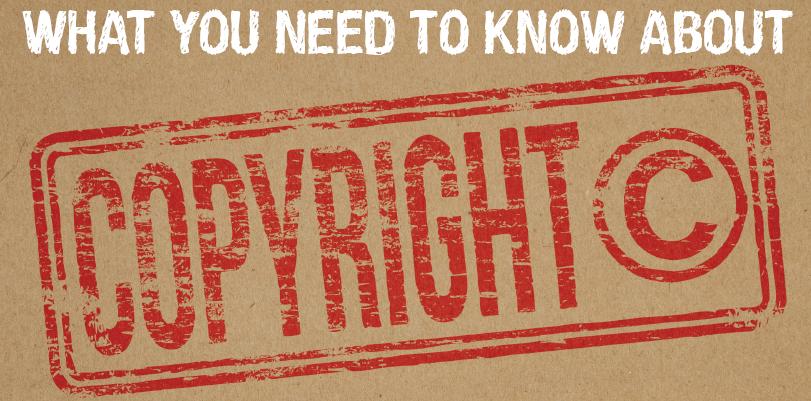In these days of digital cameras and social media it’s easy to publish pictures on the Internet and send them around the world in a flash. That’s fine if you’ve taken the picture yourself and therefore own the copyright, but what happens if it belongs to someone else and you don’t have their permission to use it?

Get it wrong and you could find yourself in hot water or even in court, so knowing the rules before you post something on your Facebook page or website could save you a lot of headaches, not to mention a lot of money.
The people at the Intellectual Property Office - who know about these things - have just published what they call a Copyright Notice explaining the latest rules about using digital imagery for both businesses and individuals. There isn’t room to include everything here, but these are some of the main points you need to know.
Copyright in images and photographs
Most images and photos are likely to be protected by copyright. This means that a user will usually need the permission of the copyright owner(s) if they want to copy the image or share it on the Internet. These include digital photos taken on mobile phones and digital cameras; images that were first generated on photographic film and any digital images created from them; and images such as diagrams and illustrations.
Who owns copyright in an image?
The person who creates an image ‘the creator’, such as somebody who takes a photo, will generally be the owner of the original copyright. However, if it was created as part of the creator’s job, the employer will generally own the copyright.
Some images which appear on the Internet are controlled by picture libraries which either own the copyright in the images or have the copyright owners’ permission to sell rights to use the images. The picture libraries sometimes restrict how the copies of the photos are used as part of their contract terms when they allow people to use the images. The restrictions may not arise out of copyright law: an image library can set terms and conditions of use in respect of images it supplies, including ones which are out of copyright, through a contract.
How long does copyright in images or photos last?
The length of the copyright period will depend on when the image was created. Generally speaking, copyright in images lasts for the life of the creator plus 70 years from the end of the calendar year of their death. That means that images less than 70 years old are still in copyright, and older ones may well be, depending on when the creator died.
What if I do not know who the copyright owner is?
Copyright does not disappear simply because the owner cannot be found. In a work where the copyright owner is not known or cannot be located, permission to use the work cannot be obtained. These are known as orphan works, and under the current law these cannot be copied. A forthcoming change in the law will allow people to buy licences to use these works in some circumstances.
Even if there is no evidence of an owner, any unauthorised use of the photo without permission would be an infringement of copyright.
What if there is no © (copyright) symbol, year or name with the image?
The copyright symbol does not have to be present for copyright to exist, so just because there is no name or copyright symbol associated with a photo or image does not mean the copyright has expired.
Is there any way I can be completely safe when I use an image from the Internet?
Almost any image on the Internet is likely to be protected by copyright, so it is only safe to use it if there is specific permission to do so through a licence or in the terms and conditions of the website supplying the image (assuming it is the copyright owner’s website or another website which has the copyright owner’s permission to allow other people to use an image). The use of licensed images ought to be much safer than using unlicensed images.
What are the consequences of copyright infringement?
When someone infringes copyright, there are various courses of action which could be taken by the individual or organisation which owns the copyright. The user of the image may be asked to purchase a licence, and a commercial arrangement might be reached after which no further action is taken. However, legal action might be taken by bringing a claim in court which could result in having to go to court for a hearing.
Deliberate infringement of copyright on a commercial scale may also lead to a criminal prosecution.
Even in situations where people may think their copyright infringement will not be detected, they run the risk of being discovered and consequently being pursued through the courts.
- For further information about Copyright Notices, email copyrightnotices@ipo.gov.uk.